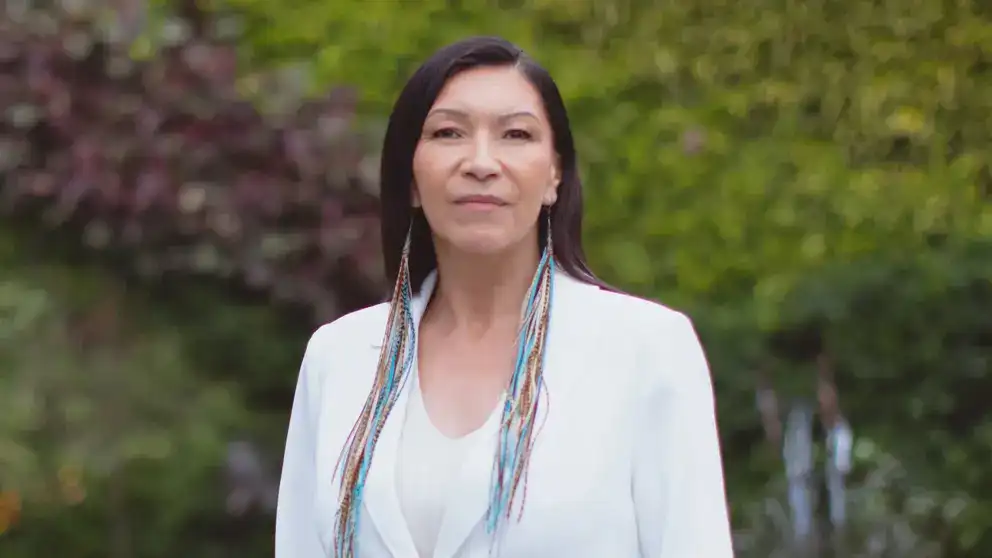Lisa Meeches, Ojibway from Long Plain First Nation in Manitoba, and a busy and successful film and television producer, had taken the summer of 2016 off to attend powwows with her family. She was performing fancy shawl dance — a physically demanding dance similar to ballet. When they reached Lethbridge, Alta., she had a strong headache that would not go away. Rather than visit family in Calgary with her husband, she stayed in their trailer with their three-year old daughter to rest. She took a shower before going to bed but remembers nothing after that.
Lisa experienced a hemorrhagic stroke — a brain bleed — and it was seven hours before she was discovered by powwow security as her shower had drained the trailer’s water tank and set off the alarm system. An ambulance was called and she was taken to the closest stroke centre, where her odds of surviving looked dire. She was in a coma for five days, her right side was paralyzed, she could not talk for three months, and she spent 3½ months in hospital.
Lisa was lucky. Her full recovery is nothing short of miraculous, for which she credits first responders at the powwow who recognized her stroke and acted quickly, medical staff at the hospital, her family, her culture and traditions, and her own strength.
“I was at one of the best stroke hospitals in the country and saw how well the system can work, including the nursing staff and my physiotherapy team who were so crucial,” she says. “I have enormous respect for everyone in the healthcare system, especially when you have a stroke or are dealing with heart disease.”
She also acknowledges the essential role that community, traditional culture and prayers from across the nation played in her recovery. Her shawl sisters — the women in her dance group — raised money in a blanket dance to send a healer to her hospital bed while she was still in intensive care.
Healing answers
“The Indigenous community knows how to come together in time of distress and we have the answers for our own healing and our own therapy. We just haven’t been asked. When we talk about healing and the power of prayer and ancestral song and dance, it is a combination of all of these things. Without my culture and my prayers, I would not have recovered.”
Overwhelmed with thoughts of “why me?” in the first days after her stroke, Lisa says the outpouring of support she received from her community awoke something within her. “It really helped me understand my own tenacity and strength.”
That support was crucial in helping her overcome the anxiety and depression that many people — especially women — experience after stroke. “Nobody gave up on me. I had such a great cheerleading team.”
Taking care for the future
Today Lisa still experiences occasional symptoms, such as weakness on her right side, when she gets overtired or stressed. So self care is a priority. “I delegate more. I really take care of myself and surround myself with positive people and spend time with family and friends. I've also learned not to engage in fights I know I won't win.”
She sees an Indigenous therapist and would like to see more discussion about mental and emotional health when it comes to stroke recovery. She urges other women who have experienced stroke to check in with themselves, allow themselves to stop and rest, find balance and say no when they need to.
Lisa is sharing her story to help raise awareness, especially among Indigenous women, of the need to take care of their health and prevent stroke and heart disease. It’s a message she feels is increasingly urgent.
“There is trauma experiencing stroke, and there is trauma from past generations for Indigenous people, and Indigenous women leaving us way too soon and the discovery of little bodies across the nation. There is an emotional and mental impact to all of this and it takes a toll on our health.”
- Learn more about women’s heart and brain health.
- Know the signs of stroke.

